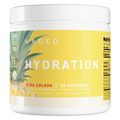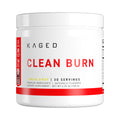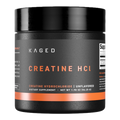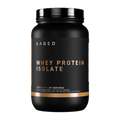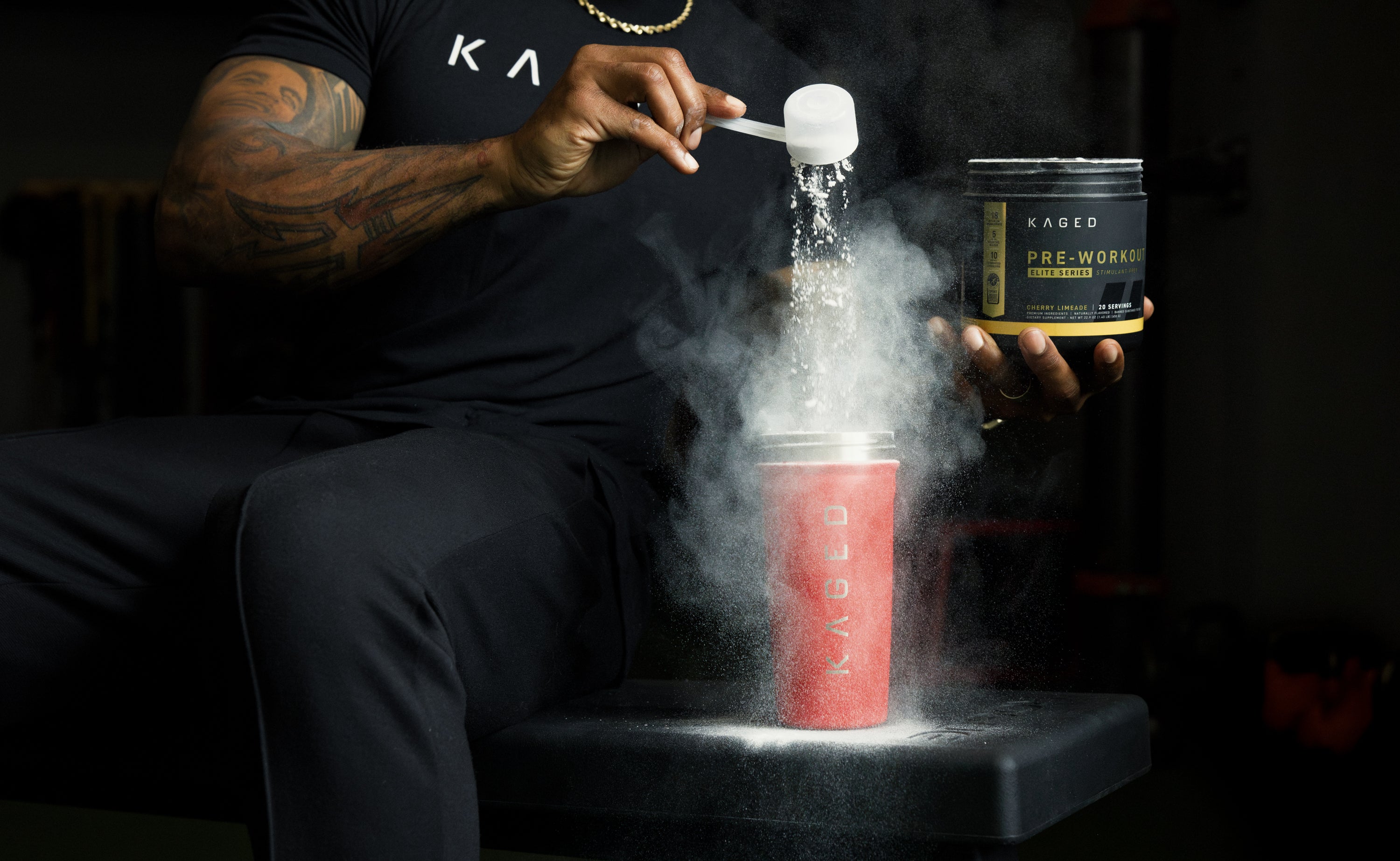Energy drinks are everywhere. Gas stations, delis, grocery stores, online retailers. In 2023, the global energy drink market hit $73 billion, proof that people everywhere are chasing a quick boost.
While they’re convenient, trendy, colorful, and often delicious, they’re not built to help you train harder, push past fatigue, or get better results in the gym. They’re built to give you a caffeine buzz.
The right pre-workout supplements, on the other hand, are formulated specifically to enhance athletic performance. They go beyond caffeine by including research-backed ingredients that support muscle endurance, blood flow, and strength.
This sounds obvious. As the difference is in the name. “Pre-workouts” are for workouts. “Energy drinks” are for energy.
But increasingly, people are cracking open an energy drink before training, and they’re losing out on their performance as a result.
If you’re just looking to get through a long workday, an energy drink might do the job. But if your goal is to perform better and see real progress, a well-formulated pre-workout is the smarter choice.
Pre-Workouts vs Energy Drinks: Quick Summary
| Category |
Kaged Pre-Workouts |
Energy Drinks |
| Designed For |
Athletic performance |
General energy and alertness |
| Common Ingredients |
CarnoSyn® Beta-Alanine, L-Citrulline, Creatine, Organic Caffeine, L-Tyrosine |
Caffeine, sugar, B vitamins, taurine |
| Supports Strength & Muscle |
✅ Yes |
❌ Rarely |
| Supports Endurance |
✅ Yes |
❌ No |
| Timing |
20–30 minutes before training |
Anytime |
| Cost per Serving |
$1.00-$2.50 |
$2.50-$5 |
| Best Use |
Training, sports, intense exercise |
Daily tasks, work, driving, studying |
What Are Energy Drinks?
Energy drinks are beverages that come in a can or bottle, ready to drink. They’re designed to give you a quick boost in energy and alertness.
People often reach for them during long workdays, late-night study sessions, or while driving.
They always contain caffeine. And often include a few other ingredients, like taurine, which has its benefits, B vitamins, maybe even some ingredients that support your metabolism.
However, you’re not getting a comprehensive formula that supports your performance in the gym.
That’s the key distinction: energy drinks are built for alertness, not athletic performance. They rarely include research-backed ingredients that enhance strength, endurance, or muscle growth, which limits their usefulness if your goal is to train harder and see better results.
What Are Pre-Workouts?
As the name implies, pre-workout supplements are formulated specifically to fuel your workouts and support athletic performance.
Instead of just providing a rush of caffeine, they (hopefully) include research-backed ingredients that work together to support your muscles, endurance, and focus — so you can get more out of every workout.
Some of the most effective ingredients include:
-
CarnoSyn® Beta-Alanine — buffers lactic acid to delay muscle fatigue, helping you push harder for longer
-
L-Citrulline — boosts nitric oxide production, improving blood flow, pumps, and endurance
-
Creatine — increases strength, power output, and supports muscle growth over time
-
Organic Caffeine — included strategically to support performance and focus, not just as a stimulant.

There’s a Wide Array of Quality for Pre-Workouts
Many of them are no better than an energy drink, or maybe even worse. The ingredients and the doses matter.
For this article, we’ll assume you’re choosing a quality pre-workout from a reputable brand like Kaged, which uses research-backed ingredients at doses used in scientific studies (on people, not just rats).
Pre-Workouts vs Energy Drinks: Formula
The first big difference is, of course, the actual formulas.
Energy Drinks Rely on Caffeine
Yes, you’ll see other ingredients. Taurine, B vitamins, and maybe even some ingredients that support your metabolism. However, you’re not getting a comprehensive formula that supports your performance in the gym.
Pre-Workouts Are About More Than Caffeine
In fact, we think that the test of a good formula is how impactful it would be without the caffeine. We pride ourselves on the effectiveness of our stimulant-free pre-workouts. On the flip side, an energy drink without caffeine wouldn’t offer much benefit at all.
Because they combine ingredients that target endurance, strength, and recovery, pre-workouts are designed to help you train harder, push past fatigue, and see better results, not just wake you up.
Pre-Workouts vs Energy Drinks: Use Case
Energy drinks and pre-workouts are built for very different purposes — and understanding that difference is key to choosing the right one.
-
Energy drinks are good for, well, energy. They’re commonly used at the office, while driving, during study sessions, or anytime you need to shake off fatigue and stay awake. They’re not designed to support your muscles, endurance, or recovery. They’re just there to perk you up.
-
Pre-workouts, on the other hand, are training-specific. They’re formulated to be taken 20–30 minutes before you hit the gym, so that when you walk in, your body has the nutrients it needs to push harder and recover better. They aren’t meant to be used casually throughout the day. They’re meant to help you perform at your best during workouts.
Put simply: Energy drinks wake you up. Pre-workouts power you up.
Pre-Workouts vs Energy Drinks: Price
Cost can be deceiving. At first glance, a can of an energy drink might seem cheaper. But when you break it down by what you’re getting, pre-workouts often give you far more performance for your dollar.
-
Pre-workouts are typically $1-$3 per scoop. On that higher end, like Kaged Pre-Workout Elite, you’re getting way more than you would from an energy drink. At the lower end, like Pre-Workout Sport, you’re getting a great formula for any workout at a fraction of the price.
-
Energy drinks usually cost $3–$5 per can when bought individually at a convenience store. Buying in bulk or off-brand can be cheaper, but these options are often lower quality and still just provide flavored caffeine.

On Convenience, They Each Have Advantages
This is where we’ll concede that energy drinks make more sense for convenience, but pre-workouts have their own advantages too.
-
Energy drinks are ready to drink. Just crack the can and go. That makes them super convenient when you’re on the move and don’t want to think about prep.
-
Pre-workouts require a little prep, but they’re also portable and versatile. You can keep a tub in your gym bag. With just water and a quick shake, you’re ready to go.
If You’re Taking Energy Drinks Before Training, Just Stop It
If you’re grabbing an energy drinks before your workouts, you’re spending more money for a product that’s not built to support performance. Stop paying premium prices for flavored caffeine when you could be investing in actual performance.
What to Look for In a Pre-Workout
With all of this said, don’t just grab the cheapest pre-workout you’ll find in a grocery store. Check out this article for what to look for in a pre-workout depending on your goals.
